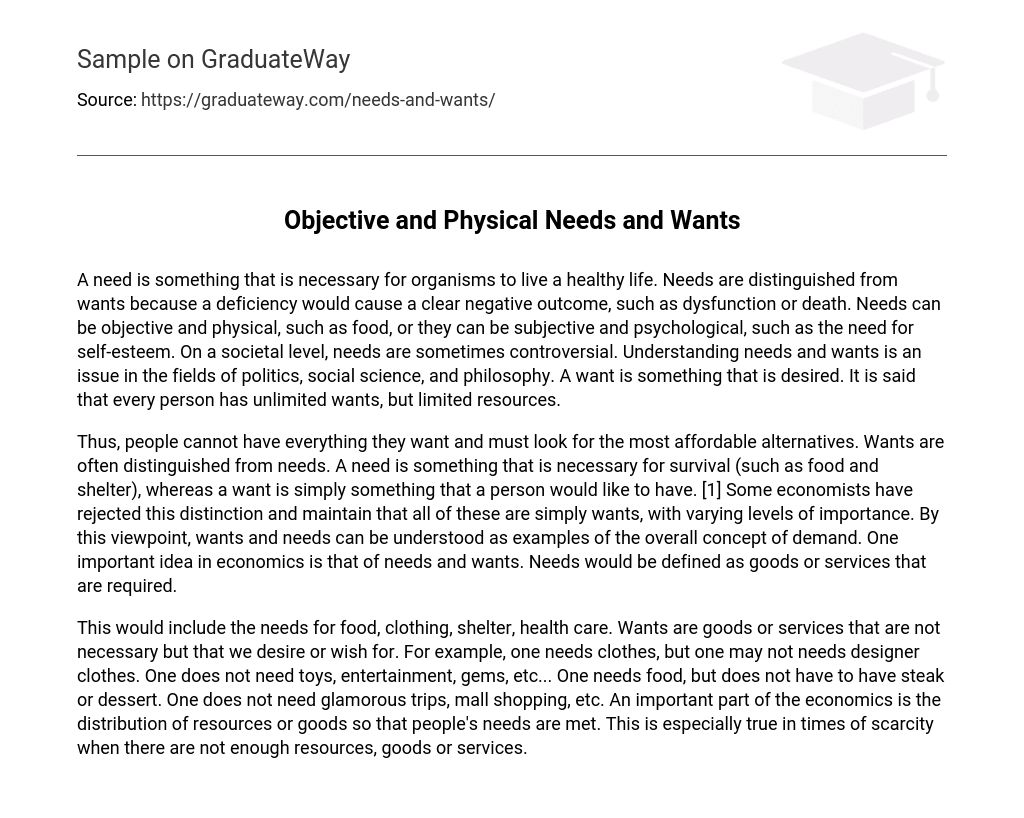A need is something that is necessary for organisms to live a healthy life. Needs are distinguished from wants because a deficiency would cause a clear negative outcome, such as dysfunction or death. Needs can be objective and physical, such as food, or they can be subjective and psychological, such as the need for self-esteem. On a societal level, needs are sometimes controversial. Understanding needs and wants is an issue in the fields of politics, social science, and philosophy. A want is something that is desired. It is said that every person has unlimited wants, but limited resources.
Thus, people cannot have everything they want and must look for the most affordable alternatives. Wants are often distinguished from needs. A need is something that is necessary for survival (such as food and shelter), whereas a want is simply something that a person would like to have. [1] Some economists have rejected this distinction and maintain that all of these are simply wants, with varying levels of importance. By this viewpoint, wants and needs can be understood as examples of the overall concept of demand. One important idea in economics is that of needs and wants. Needs would be defined as goods or services that are required.
This would include the needs for food, clothing, shelter, health care. Wants are goods or services that are not necessary but that we desire or wish for. For example, one needs clothes, but one may not needs designer clothes. One does not need toys, entertainment, gems, etc… One needs food, but does not have to have steak or dessert. One does not need glamorous trips, mall shopping, etc. An important part of the economics is the distribution of resources or goods so that people’s needs are met. This is especially true in times of scarcity when there are not enough resources, goods or services.





